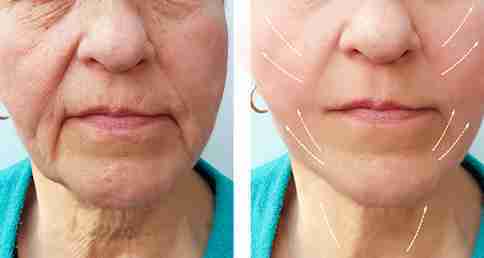In today’s fast-paced world, where appearances often intersect with self-perception, Botox has emerged as a widely accepted and sought-after solution. Originally introduced for medical purposes, this neurotoxin is now synonymous with beauty maintenance and confidence enhancement. Over time, public sentiment has shifted, and Botox is no longer reserved for celebrities or the ultra-wealthy. Instead, it has become part of a larger conversation around preventative care, wellness, and psychological wellbeing.
This blog delves into the motivations behind Botox use, the evolving attitudes surrounding its application, and how ethical considerations continue to shape the cosmetic landscape.
From Medical Roots to Mainstream Acceptance
Botox began as a treatment for muscle disorders like blepharospasm and chronic migraines. Its cosmetic benefits were discovered unexpectedly, leading to its widespread use in aesthetic medicine.
Key reasons for its mainstream rise include:
- Media influence showcasing celebrity use
- Increasing affordability for everyday consumers
- Availability of minimally invasive techniques
Today, Botox represents more than just wrinkle reduction, it’s a symbol of proactive self-care. Botox in Sheffield is no longer seen as a luxury for the few but has become a routine part of many people’s beauty and wellness habits, reflecting changing views on aesthetic maintenance and personal confidence.
Why People Choose Botox: A Closer Look
Understanding the thought process behind Botox use requires examining both external influences and personal motivations. While aesthetic improvement remains the primary draw, a range of psychological and social factors also play a significant role.
Common motivations include:
- Reducing visible signs of ageing
- Maintaining a youthful appearance for professional advantage
- Preventing deeper wrinkles from forming
- Boosting self-confidence and personal satisfaction
The rise of preventative Botox among those in their 20s and 30s highlights a generational change. Instead of waiting for wrinkles to form, younger people are increasingly incorporating early Botox treatments into their regular skincare routines.
Image Source - Emergency Dentist Sheffield
Botox and Emotional Wellbeing
Aesthetic procedures like Botox may offer emotional benefits, with many individuals reporting a boost in confidence and reduced social anxiety after treatment.
Psychological impacts can include:
- Improved self-esteem
- Greater comfort in public or social settings
- Enhanced alignment between appearance and self-image
However, emotional wellbeing shouldn’t depend solely on cosmetic enhancement. It’s essential to:
- Set realistic expectations
- Prioritise a natural look
- Approach Botox as part of a broader self-care routine
Reputable providers always encourage patients to see these treatments as a supportive tool not a cure-all for emotional health and personal confidence.
Ethics in the Era of Aesthetic Accessibility
The increased availability of Botox raises important ethical considerations. While accessibility has empowered many, it has also made the procedure vulnerable to misuse or poorly informed decision-making. This highlights the need for thorough consultations, practitioner responsibility, and patient education.
Key ethical responsibilities include:
- Assessing patient motivations and psychological readiness
- Providing clear, honest communication about outcomes
- Refusing treatment when expectations are unrealistic or health risks are present
Providers must ensure they are not capitalising on insecurity or social pressure. Instead, they should act as guides, helping individuals make choices rooted in empowerment and self-respect.
The Role of Dental Clinics in Botox Delivery
In recent years, a growing number of dental professionals have begun offering Botox treatments. With their in-depth understanding of facial anatomy, many private dentists have expanded their services to include facial aesthetic procedures.
A private dentist in Sheffield, for example, may offer Botox as part of a broader approach to facial harmony and oral-facial health. This integration is especially useful in cases such as:
Application Area | Purpose | Typical Provider |
Forehead/Wrinkle Lines | Aesthetic | Cosmetic clinic/dental clinic |
Gummy Smile Correction | Functional + Aesthetic | Private dentist |
TMJ and Bruxism Relief | Therapeutic | Private dentist in Sheffield |
By choosing trained professionals, patients benefit from safer, more effective results within a trusted clinical setting.
Cultural Shifts and the Future of Botox
Society’s perception of ageing is gradually changing. There is greater acceptance that taking care of one’s appearance does not negate authenticity or depth. Instead, it can be part of embracing one’s identity with confidence.The rise of platforms showcasing unfiltered content alongside curated perfection has fostered a more nuanced understanding of beauty. As a result, Botox is now viewed by many as a form of self-investment rather than vanity.
Future trends may include:
- Increased emphasis on subtle, natural-looking results
- Broader adoption across genders and age groups
- Enhanced regulatory standards and practitioner accreditation
Video link - Smooth, Youthful Skin with Expert Botox Treatments!
The Influence of Social Media on Botox Expectations
Social media platforms have significantly shaped public expectations around Botox, often portraying overly perfected and filtered results. This digital influence can distort perceptions and create unrealistic goals.
Impacts include:
- Heightened pressure to appear flawless
- Misunderstanding of what Botox can truly achieve
- Increased demand among younger audiences
Responsible providers counter this by promoting:
- Transparent communication about expected outcomes
- Educational content to dispel myths
- A focus on individualised, realistic treatment goals
By fostering authenticity, professionals ensure patients make informed choices rooted in self-care rather than comparison.
Image Source - Emergency Dentist Sheffield
Professionalism and Patient Empowerment
Choosing the right provider is essential when considering Botox, whether for aesthetic goals or therapeutic relief. A trusted professional ensures safety, clarity, and satisfaction.
Why provider choice matters:
- Personalised care tailored to your needs
- Transparent communication about risks and outcomes
- Guidance rooted in ethics and empathy
A private dentist in Sheffield offering Botox blends medical expertise with a patient-centred approach, ensuring informed and comfortable experiences.
Patients should:
- Ask questions freely
- Explore treatment alternatives
- Make choices based on overall wellbeing
This approach supports better results, greater trust, and long-term satisfaction with aesthetic care.
Conclusion
The growing popularity of Botox reflects deeper societal and psychological shifts. From improving self-confidence to managing functional issues, its appeal spans multiple needs and goals. Yet at its core, Botox is most effective when administered with intention, ethics, and professional insight.
Whether used to soften fine lines, correct asymmetries, or aid in muscle-related conditions, Botox must be approached with thoughtfulness and care. For individuals seeking such services in a trusted environment, the team at Sheffield continues to offer responsible, patient-centred aesthetic support grounded in clinical expertise and respect for individuality.

